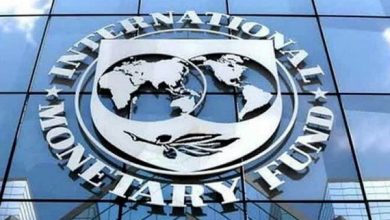Nigeria Targets Zero Gas Flaring by 2030 with Gas-Centric Transition Strategy, NUPRC
Nigeria pledges to end gas flaring by 2030 and slash methane emissions for cleaner growth.
With bold reforms and global backing, the nation eyes gas as a path to green prosperity.
Nigeria has reaffirmed its commitment to ending routine gas flaring by 2030 and reducing methane emissions by 60% by 2031, through an ambitious gas-centric energy transition strategy aimed at promoting sustainability, attracting investment, and accelerating industrial growth.
This announcement was made by the Chief Executive of the Nigerian Upstream Petroleum Regulatory Commission (NUPRC), Engr. Gbenga Komolafe, during his keynote address at the 24th Nigeria Oil and Gas (NOG) Energy Week held in Abuja on Wednesday, July 2, 2025.
According to Komolafe, Nigeria’s gas-centric approach is anchored on key policy initiatives, including the Decade of Gas, the Nigeria Gas Flare Commercialization Program (NGFCP), and the Presidential Compressed Natural Gas (CNG) Initiative. These programs are designed to unlock Nigeria’s substantial gas reserves, reduce emissions, and position gas as a transitional fuel to power Africa’s economic revival.
“Our goal is clear,” Komolafe stated. “We intend to eliminate routine gas flaring by 2030 and cut methane emissions by 60% by 2031. This will not only improve environmental outcomes but also enhance energy security and create new economic opportunities.”
The NUPRC strategy is underpinned by Nigeria’s Upstream Decarbonization Framework, which incorporates emissions tracking, carbon capture and storage technologies, and access to climate financing through carbon markets. This framework is further supported by advanced measurement, reporting, and verification (MRV) systems.
“These are not just policy documents,” Komolafe noted, “but practical platforms for innovation, investment, and inclusive economic growth.”
As part of this plan, Nigeria is ramping up investments in Liquefied Natural Gas (LNG) infrastructure, deploying floating LNG terminals, and spearheading transnational gas pipeline projects aimed at improving energy access across West Africa and beyond.
Komolafe also highlighted emerging opportunities in carbon services, revealing that Nigeria is creating a carbon services ecosystem, a new sector designed to help stakeholders generate revenue through emissions reduction, carbon trading, and clean technology consulting, while adhering to global environmental standards.
The NUPRC has already established the Decarbonization and Energy Sustainability Forum, launched in March 2025, to provide an annual platform for stakeholders to assess progress, share innovations, and align actions with Nigeria’s climate goals.
This announcement aligns with Nigeria’s obligations under international climate accords and addresses mounting pressure to reduce its carbon footprint. By prioritizing gas over coal and oil, the government aims to drive industrial growth, improve energy reliability, and support a sustainable low-carbon economy.
The International Energy Agency (IEA) has previously recognized Nigeria’s goal of ending gas flaring by 2030. NUPRC estimates that the NGFCP alone could unlock $2.5 billion in investments, generate substantial government revenue, and create thousands of new jobs.
As the global investment landscape shifts towards cleaner energy, Nigeria’s upstream oil and gas sector is becoming an increasingly attractive magnet for investors focused on decarbonization, carbon finance, and gas infrastructure development.



